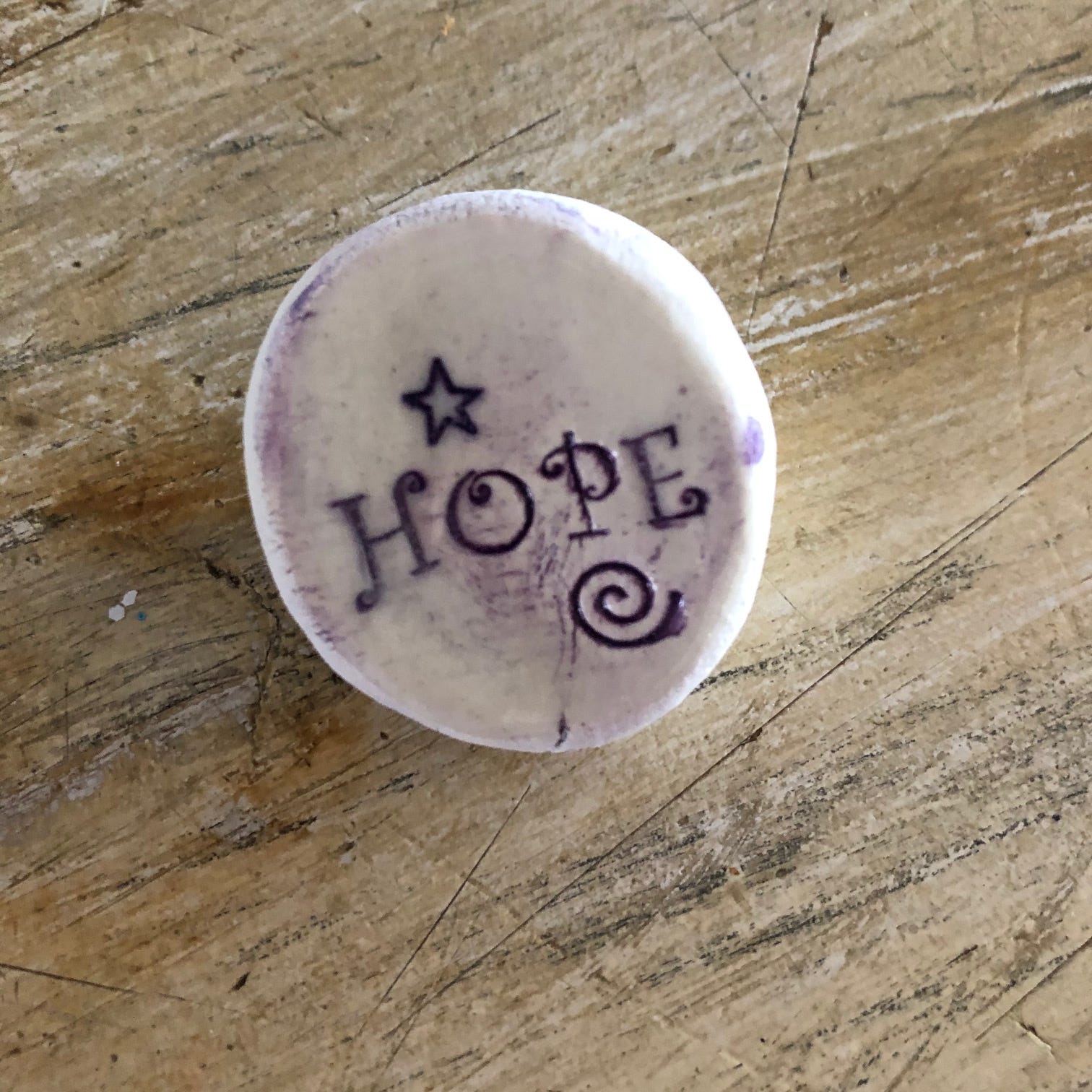Author
Educator
My work is focused on solutions to help students, educators and their institutions to thrive, not just survive.


When we struggle and can’t find the perfect words to express our feelings, we oft-times turn to well worn aphorisms (defined generally as short statements of a general truth or statements that provide insight or quality advice). The trouble is that some of these common aphorisms aren’t true and yet we utter them as truisms. And we keep repeating them as if saying them more confers more heft to them.
In reality, some aphorisms are downright wrong and harmful. (True, some are apt and accurate.) Some have taken on a political connotation, messaging vastly more than what one might suspect at first blush. Add to this that there are existing common aphorisms that contradict each other, leading one to believe that both can’t be true or can they?
For the record, I am not the first and surely will not be the last to question the meaning of what we say repeatedly that lacks meaning and actually promotes falsehoods.
https://www.independent.co.uk/voices/top-10-untrue-sayings-aphorisms-a8790516.html
We Miss Psychic Realities: That’s Not Good
I am particularly worried about phrases that deny the psychic reality of how human being deal with and address difficult times and complex emotions. I worry about phrases that are what I would term “psychobabble;” they miss how our feelings, thoughts and behaviors actually work in real time in real life.
Given the Pandemic, racial tensions and economic and political uncertainty of our world, now seemed like a good time to single out some of these phrases and deconstruct them. Indeed, this is an exercise that can be done with students, helping them think through what we often say but actually do not mean — in the immediate or longer term. To be sure, there are many aphorisms and I have identified only some of them.
But, identification of failed aphorisms isn’t enough. There needs to be a counterpoint — some accurate aphorisms (existing or to be created) that can inspire and inform and direct us forward. So, I have provided some of those after the exercise of deflating a sampling of existing aphorisms.

One added note: please share other examples of aphorisms that fail us and ones that actually help us. Add them on as a comment or send them to me through my website at www.karengrosseducation.com. We can keep a running list!
Aphorisms that Fail
Let’s start with this saying: Sticks and stones will break my bones but words will never hurt me.
How false is this statement? Imagine being on the receiving end of racial slurs and other affronts to one’s ethnicity or gender or sexual orientation. We need to take abusive language seriously; words do hurt and do do harm. Goodness, how can we treat verbal abuse as non-hurtful? And, the phrase also ignores the legal reality that we punish individuals who harm others with words that are not true — whether written or spoken. We label that slander and libel.
From the standpoint of children in schools (whether in person or online), we know that harassment is deeply harmful and can be traumatizing. Saying to a child “You are stupid;” or “You are fat;” or “You smell;” on a single occasion is offensive but likely not life-damaging unless those words negative words are reinforced at home or in other settings. But, if a child hears those sentences repeatedly and by people with whom the child has occasion to see again and again (peers in school; relatives; community members), there are serious and harmful consequences.
These phrases can affect students’ self-perceptions; it can raise their autonomic nervous system response; it can be traumatizing, especially when not counteracted with positive childhood experiences. Words hurt; they affect our brain development and our neural pathways. They create long term memories and opportunities for triggering at different ages and stages, including into adulthood.
Let’s delete this aphorism from our lexicon.
Take this phrase: Time heals all wounds. That’s just false. Time heals some wounds physically and psychically and ameliorates others. But there are some wounds from which we don’t recover fully — physically or mentally; we navigate forward; we learn work-arounds. But time doesn’t eliminate the trauma we’ve experienced.
Consider the experience of war as a dramatic example. Once one has experienced war, the impact is retained in one’s mind. Even those without diagnosed PTS continue to revisit the experiences. For a less dramatic example, consider wounds from a terrorist attack or a school shooting. Just seeing one’s scarred skin or jumping when there is a loud booming sound are evidence that time has not eliminated the impact of the initial traumatic events.
Now it is true that there are positives that can occur post-trauma. Some of the negatives induced by trauma like hypervigilance can be transmuted into a positive. But, those positives are not the same as saying that time heals all wounds. Would that time had that power to vacuum trama from the mind and body.
Let’s delete this aphorism from our lexicon.
Now consider the aphorism The Pen is Mightier than the Sword. Come on. As an author who finds enormous benefits from writing (and hopefully helping others with my words), writing cannot equal a sword — a literal or figurative sword. There are victims of rape where words (written) did not cure the violence to which they were subjected. We can write about how hurt we are by words or deeds but if someone approaches us with a weapon, words (whether written or oral) usually aren’t enough. We can try to get an assailant to stop with words but most violent criminals and abusing parents/spouses are not controlled by words. Indeed, words can exacerbate the impending harm. The sword can strike us down.
Now, to be sure, words can help after the sword has been used (assuming death has not occurred) and many a traumatized person has used writing in the form of poems or memoirs or autobiographies or essays to deal with and process their pain. But, that does not eliminate the damage; it allows it to be ameliorated but that is hardly erasure or a perfect offset.
We often encourage students to write their thoughts. Journaling is a common pedagogical tool. And, being able to express feelings in writing — whether or not seen by others — has benefits. But, it doesn’t mean swords used or to be used can be mitigated by writing.
Let’s delete this aphorism from our lexicon.
Now, among my least favorite aphorisms and one that perhaps should have come at the top of the list here: Pull yourself up by your bootstraps. It is a phrase often used to push for self-reliance and the development of individual responsibility. It is heralded as an act that is honorable and favorable.
Start with the impossibility of the act itself. How could one pull oneself up by one’s bootstraps) assuming one is wearing boots. Indeed, historically, the phrase was used to show absurdity of a request, not the way we use it now.
We use this odd phrase now to encourage an anti-coddling approach to life. We want children and adults to self-heal. If you just work at it, the saying suggests, you can push yourself forward and moving onward.
Really? Since when is getting help the antithesis of developing personal responsibility? If we help children learn and develop psycho-social readiness, why is that construed as coddling and diminution of individual effort? If anyone has been involved in therapeudic settings or tutoring, it is not a one sided enterprise. It is reciprocal. Also, therapists and tutors do not just pour information into the heads of children or patients or clients, with the clients remaining passive.
I have often thought that we deter individuals from asking for help because we characterize it as a sign of weakness. Why isn’t is a sign of strength? Asking for help is already a recognition that a person is concerned about their capacity to function optimally. Admitting to not knowing something is a strength and not a message of weakness.
Finally, an aphorism that reeks: He [she] who hesitates is lost. This phrase suggests that speed is equal to success. It also diminishes our pausing to reflect. Flipping off answers or actions is not always the right pathway forward. Thinking, reflecting, pondering is not bad. In fact, in many instances it is wise.
If hesitancy means avoidance, then there is truth to the idea that if we ignore big and small issues, they will not resolve themselves. But, that is not what the word “hesitate” means for most people. It means stop momentarily.
Many moons ago, when I first started my 8 year stint as a college president, I was struck by the number of issues that had to be decided in a single day. Questions kept coming from every direction: faculty, staff, students, alumws, donors, community members, media, other educators. A wonderful mentor said to me (paraphrased): “Each day you will be asked 30 things. For some of the questions, the answers do not really matter; the key is to make a decision. But, on the 30 things that are asked, 5 are really important. And, the key is to know which are the important questions and which are not. For the important questions at are not urgent (like the water system is broken and we need a new major construction project to fit it), there is time to pause and reflect.” I recollect saying many time (and readers who knew me then can verify this): “Let me reflect on this.” Or, “Let me get more facts.” or “Let me ponder options.” And the key was to get back to people — even if these wasn’t an instant response.
If you hesitate, you often are not lost; you are found. So let’s take this aphorism and delete it from the lexicon.

Substitutes
It is was easier to strike down aphorisms than to provide existing or new ones that have real meaning, that are truthful and can withstand the test of time. And, for me, a good aphorism must recognize how our minds and bodies work. So, we can skip a statement like Diamonds are a Girl’s Best Friend. The oft-used phrase Bang for the Buck has sexual connotations (just think prostitution) and can be avoided too. Instead, consider these six aphorisms. Some are taken from stockpiles of existing aphorisms. Others are my own. Others are adaptations from oft-repeated aphorisms.
Be Kind; It matters.
Don’t judge a book (or a person) by its (his/her) cover.
‘Tis better to have loved and lost than never to have loved at all.
Believe in the power of the possible.
Education happens in many places and spaces of which the classroom is but one.
Keep an open mind and an open heart.
Consider asking children to compare these aphorisms to the five aspirations detailed above. Have students search for other aphorisms that they think have true, lasting meaning and those that need to be discarded. Have them create new or adapted aphorisms.
Conclusions
We need words to live by in these trying times. Consider the phrases we use and ones we could use more. It is an exercise well worth doing at all ages and stages. (And I think there are several aphorisms hidden or not so hidden throughout this piece.)
Note: Original article appeared on Medium at: https://medium.com/age-of-awareness/we-use-aphorisms-in-times-of-trouble-time-for-caution-2ec1ad845a0b